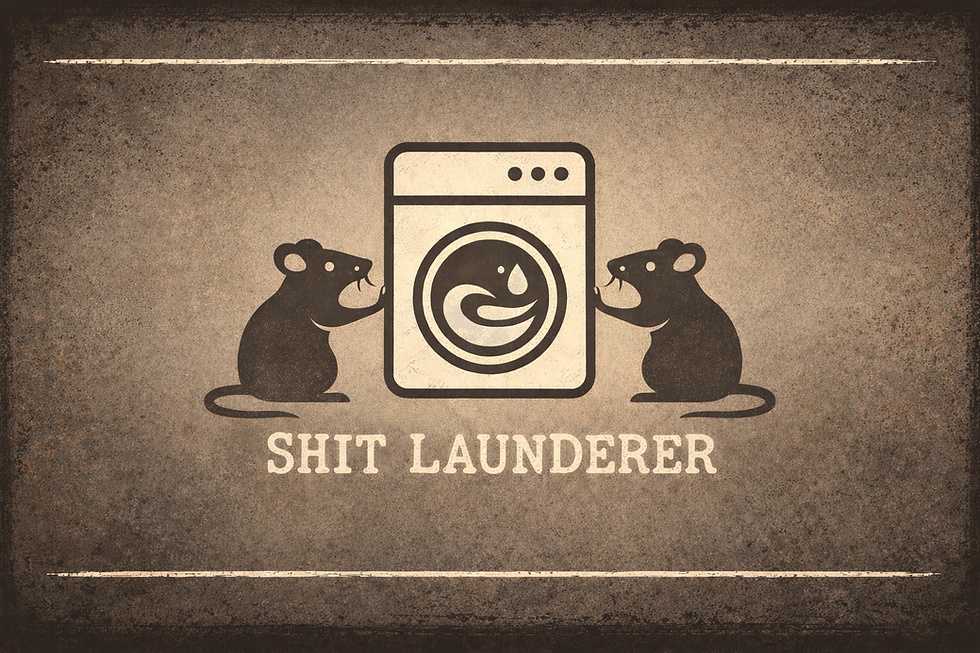As New Paris Details Emerge, the Trump-Witkoff-Putin Sabotage Takes Fuller Shape
- john raymond
- Sep 5, 2025
- 3 min read

When I first analyzed the Paris summit, I argued that what occurred from the American side was not hesitation or mishandling but pure sabotage.
The central thesis was simple: President Trump was not building security guarantees for Ukraine but actively tearing them down, in service of Kremlin interests.
At the time, only partial details were available, yet the structure of sabotage was already evident.
Now, with the new reporting from MeidasTouch, the outlines have hardened into vivid relief. What I argued yesterday in principle is today confirmed in detail.
The new accounts describe Trump refusing to attend the Paris summit, sending Steve Witcoff—a real estate crony with no diplomatic experience and well-documented Putin sympathies—to ambush the room.
Witcoff shouted false accusations about Europe buying Russian oil, stormed out after twenty minutes, and left the allies reeling.
Simultaneously, Trump’s administration cut long-term U.S. training and security programs for NATO’s eastern flank, precisely as Europe was seeking to formalize new guarantees for Ukraine.
And behind it all, we now see the hypocrisy laid bare: Trump privately reassured Viktor Orbán that Hungary should continue to receive Russian oil, even as his envoy accused Europe of doing exactly that.
None of this contradicts the original analysis. It strengthens it.
What was already structurally obvious—that Trump sought to derail the very core of the summit—is now undeniable.
The Oil Pretext: Narrative Theft Confirmed
Yesterday I wrote that Trump’s oil accusations against Europe were narrative theft: he sought to claim credit for European reductions while framing allies as complicit. The new details make the inversion unmistakable.
Only Hungary and Slovakia import Russian oil directly, and both are politically aligned with Trump’s sympathies. Europe as a whole has slashed Russian energy dependence since 2022.
Yet Witcoff went into Paris shouting that the entire EU was guilty. At the very same moment, Trump was sending Orbán letters of sympathy, assuring him that Russian oil should continue to flow through the Druzhba pipeline.
This is not confusion. It is asymmetric sabotage.
Trump shields Kremlin oil flows, then wields false accusations against Europe to fracture the summit. The hypocrisy is not an accident—it is the point.
The India Gambit: Economic Sabotage in Plain Sight
My second argument was that Trump’s economic tactics are sabotage, not strategy. He pressures allies under false pretenses to fracture coalitions and to drive countries like China and India closer to Russia. The new details expose this in starker form.
Witcoff tried to sell “India as the problem” in Paris. He argued Europe was complicit because India sometimes refines Russian oil and resells it. But Europe’s exposure via India is negligible—less than one percent of supply. The numbers are meaningless.
So why make India the centerpiece accusation? Because it offered a new wedge.
Witcoff’s attack was designed to force Europe into the same track as Traitor-General Trump: treating India as a target rather than a partner, and in the process pushing it closer to Moscow.
This was not about strengthening sanctions; it was about planting poison.
What looks like incompetence is actually asymmetric intent. The India gambit was meant to induce Europe into self-sabotage.
Security Guarantees: From Rhetoric to Material Sabotage
Finally, my third point was that Trump’s obstruction undermined the credibility of security guarantees. Guarantees are not promises on paper; they are an architecture of deterrence. What we now know is that the sabotage went beyond rhetoric.
As Paris was meeting, the Trump regime cut U.S. funding for programs that train and equip Eastern European militaries—the very frontline states that would bear the burden of a Russian assault.
The simultaneous timing is not coincidence. The United States walked away from the architecture while Trump’s envoy dismantled its credibility in the room.
Thus the sabotage of security guarantees is now visible on two levels: the collapse of words and the collapse of material support.
Continuity, Not Rupture
MeidasTouch framed Paris as an “ambush,” a shocking betrayal that left allies furious. That description is correct in mood but wrong in structure. Paris was not a rupture. It was continuity. It was another instance in a long pattern of asymmetric sabotage that defines Trump’s alignment with Kremlin interests.
The new details do not change that interpretation. They prove it.
As Bad As We Thought
What I argued yesterday from limited detail—that Trump’s behavior in Paris was pure sabotage—stands more clear than ever today.
The oil accusations were pretext.
The India gambit was poison.
The cuts to Eastern European programs were material sabotage.
In effect, Trump tried to derail the very core of the summit: the effort to architect binding security guarantees for Ukraine.
The lesson is not that Paris was chaotic. It is that Paris was predictable.
Trump did not fail at diplomacy. He succeeded at sabotage.






Comments